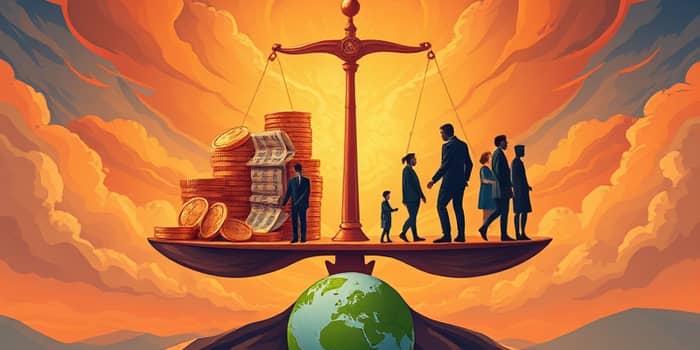
The collision between moral values and financial imperatives defines many of today’s most pressing debates. From corporate boardrooms to public policy forums, the question arises: at what price do we sacrifice our principles for the sake of maximizing profit at all costs? This article explores the deep roots of the ethical-economic divide, examines real-world case studies, and offers practical pathways to bridge this chasm.
The tension between ethics and economics dates back centuries. Immanuel Kant famously insisted on people as ends in themselves, cautioning against treating individuals merely as instruments for another’s gain. In contrast, classical economics evolved around concepts of efficiency and preference optimization, often sidelining questions of fairness or dignity.
Utilitarian thinkers proposed maximizing aggregate welfare as the guiding principle, yet critics argued that rights-based and virtue ethics perspectives were essential counterweights. Over time, these philosophical strands diverged, setting the stage for debates on resource allocation, labor exploitation, and the role of government in correcting market failures.
Today, the economic imperative often trifurcates public values, corporate strategy, and individual livelihoods. Here are prominent arenas where these pressures play out:
Real-world examples illustrate how ethical shortcuts can backfire, undermining trust and long-term viability:
During the pandemic, governments confronted the brutal choice between lockdowns and livelihoods. Models weighing the balancing public health and economy underscored that both outcomes carry steep human and financial costs. Similarly, companies discovered that hiding environmental or labor abuses invites consumer backlash and regulatory scrutiny.
Underlying these dilemmas are structures that reward short-term gains and penalize ethical restraint. Corporations may lobby against regulations designed to protect workers or the environment. Investors frequently overlook social harm when chasing maximum returns.
These incentives create a vicious cycle: ethical considerations remain reactive, surfacing only after scandal or public pressure, rather than being integrated into strategic decisions from the outset.
Compromising on core values has wide-ranging effects. Societies experience eroded trust in institutions, while individuals feel dehumanized by systems that view them as mere inputs. Inequality deepens when economic policies ignore justice or fairness.
Businesses discovering their ethical breaches often face reputational damage that far exceeds any short-term cost savings. In global markets, environmental catastrophes and labor scandals can wipe out shareholder value overnight, proving that the price of compromise may ultimately be higher than anticipated.
Can we reimagine economic activity so that ethics and prosperity coexist? A multipronged approach holds promise:
Moreover, integrating ethics into economic education—teaching both moral philosophy and market analysis—can cultivate leaders who perceive fairness not as an obstacle but as an asset.
The persistent myth of value-free economics obscures the reality that every policy embeds ethical choices. We cannot indefinitely divorce efficiency from justice or growth from human dignity. By acknowledging the human cost of profit-driven decisions, societies can construct frameworks where financial and moral imperatives reinforce each other.
The pressing question remains: are we willing to pay the price of continued compromise, or will we chart a path toward an economy that truly serves the common good? The answer will define our collective future and determine whether ethics and economics can finally find common ground.
References





